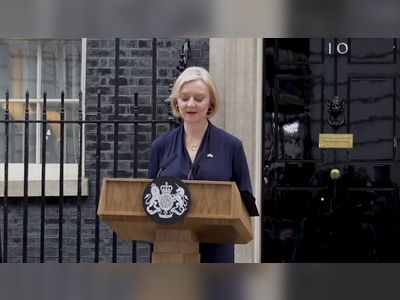
UK Stocks and Bonds Brace for Impact of Chancellor Rachel Reeves’ Autumn Budget
Markets eye potential tax increases, bond yields and domestic equities ahead of the November 26 fiscal statement
Private and institutional investors in the United Kingdom are intensifying their scrutiny of the upcoming Autumn Budget, to be delivered by Chancellor Rachel Reeves on November 26. With economic growth subdued, public-sector debt elevated and tax revenue under pressure, markets are signalling elevated risk that the government will announce significant tax rises and introduce new burdens on domestically-focused companies.
Recent public remarks by the Chancellor, indicating that “we will all have to contribute” to securing the nation’s finances and declining to reaffirm previous manifesto commitments not to raise income tax, national insurance or value-added tax (VAT), have stoked investor anxiety.
Market signals illustrate the pressure: long-term UK government bond yields have risen to their highest levels since the late 1990s, with the 30-year gilt yield passing 5.7 per cent.
Sterling has weakened in parallel, and the FTSE 250 — which is more exposed to domestically-focused companies — has under-performed relative to the export-oriented FTSE 100.
Analysts project that while large multinational firms listed on the FTSE 100 may be relatively insulated — given that roughly three-quarters of their revenues derive from overseas markets — companies more dependent on the UK domestic economy face real vulnerability.
Domestic retailers, housing-related firms, property companies and banks are highlighted as sectors where investor sentiment may deteriorate sharply if the Budget includes new taxes, levies or regulatory changes.
There is specific speculation that capital-gains tax alignment, dividend-tax changes or taxation of savings accounts could trigger outflows or re-rating of parts of the market.
Yet it is not purely downside risk.
Some commentators argue that the chancellor’s stated intention to boost investment in “major projects” and accelerate house-building through reduced planning red tape could benefit firms in construction, civil engineering and infrastructure.
With the government signalling a pivot to growth-oriented spending alongside fiscal consolidation, investors are hunting for firms positioned to benefit from government-backed programmes.
In the banking sector, reports suggesting that the government may spare major banks from new punitive budget tax measures caused bank shares to rally ahead of the Budget announcement.
The FTSE 350 Banks Index rose by some 1.3 per cent on this news, reflecting relief that the sector may avoid heavier burdens.
This selective exemption suggests the government is conscious of the economic risks of squeezing bank profitability and credit availability.
While the market reaction is significant, analysts caution that this is not yet at the scale of the 2022 “mini-budget” gilt crisis.
Nonetheless, the elevated yields and weaker sterling indicate that investors are demanding a “risk premium” for holding UK debt and domestically-exposed equities.
The next few weeks will be crucial, as details of tax rises, spending plans and fiscal rules must be digested and capital markets will test the credibility of the government’s strategy to combine growth with fiscal discipline.
For investors and homeowners alike, the Autumn Budget will mark a pivotal moment: a test of how much the government is prepared to ask households, savers, companies and the financial markets to contribute — and how markets will respond to that ask.
Recent public remarks by the Chancellor, indicating that “we will all have to contribute” to securing the nation’s finances and declining to reaffirm previous manifesto commitments not to raise income tax, national insurance or value-added tax (VAT), have stoked investor anxiety.
Market signals illustrate the pressure: long-term UK government bond yields have risen to their highest levels since the late 1990s, with the 30-year gilt yield passing 5.7 per cent.
Sterling has weakened in parallel, and the FTSE 250 — which is more exposed to domestically-focused companies — has under-performed relative to the export-oriented FTSE 100.
Analysts project that while large multinational firms listed on the FTSE 100 may be relatively insulated — given that roughly three-quarters of their revenues derive from overseas markets — companies more dependent on the UK domestic economy face real vulnerability.
Domestic retailers, housing-related firms, property companies and banks are highlighted as sectors where investor sentiment may deteriorate sharply if the Budget includes new taxes, levies or regulatory changes.
There is specific speculation that capital-gains tax alignment, dividend-tax changes or taxation of savings accounts could trigger outflows or re-rating of parts of the market.
Yet it is not purely downside risk.
Some commentators argue that the chancellor’s stated intention to boost investment in “major projects” and accelerate house-building through reduced planning red tape could benefit firms in construction, civil engineering and infrastructure.
With the government signalling a pivot to growth-oriented spending alongside fiscal consolidation, investors are hunting for firms positioned to benefit from government-backed programmes.
In the banking sector, reports suggesting that the government may spare major banks from new punitive budget tax measures caused bank shares to rally ahead of the Budget announcement.
The FTSE 350 Banks Index rose by some 1.3 per cent on this news, reflecting relief that the sector may avoid heavier burdens.
This selective exemption suggests the government is conscious of the economic risks of squeezing bank profitability and credit availability.
While the market reaction is significant, analysts caution that this is not yet at the scale of the 2022 “mini-budget” gilt crisis.
Nonetheless, the elevated yields and weaker sterling indicate that investors are demanding a “risk premium” for holding UK debt and domestically-exposed equities.
The next few weeks will be crucial, as details of tax rises, spending plans and fiscal rules must be digested and capital markets will test the credibility of the government’s strategy to combine growth with fiscal discipline.
For investors and homeowners alike, the Autumn Budget will mark a pivotal moment: a test of how much the government is prepared to ask households, savers, companies and the financial markets to contribute — and how markets will respond to that ask.









